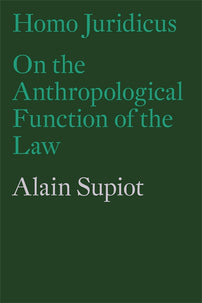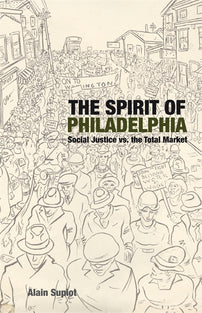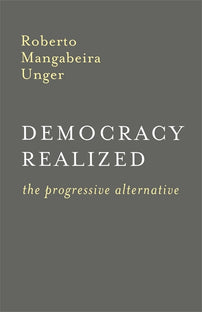A wise government should beware of scorning social dialogue
The legal scholar Alain Supiot, in an article for Le Monde, warns that in claiming the legitimacy of the ballot box against the street, the government’s strategy in the conflict over pension reform is deceitful. The collective action of workers, constitutive of social citizenship, is complementary to democratic life and essential to it.

**This article was originally published by Le Monde on 15 March 2023.
Fast thinking can be as bad for your intelligence as fast food is for your health. Among the most unsavoury dishes served up to us these days in the media is the opposition between democracy and the street. Warmed over ad nauseam, this ready-made thinking justifies in advance the happy ending of the pension reform, which can only be the victory of democratic good over anarchic evil. But not only does this presentation misunderstand the nature of our democracy, it also contributes to depriving it of one of the legs that allows it to walk: its social leg.
The ‘society’ referred to in the Declaration of 1789 was ideally conceived as a homogeneous body, composed of free and equal citizens – even if this ideal was immediately betrayed by excluding women from the right to vote, subsequently by the restoration of slavery in the colonies and a property-based suffrage that excluded the poor.
Understood in this way as a collection of individuals who were all alike, political society could not admit any other representation than that resulting from elections, hence the prohibition of all intermediate bodies by the Le Chapelier law and the Allarde decree of 1791. According to Tocqueville’s ironic observation, ‘the notion of government is simplified: numbers alone make law and right. All politics is reduced to a question of arithmetic’.
Social dialogue [Trans.: la démocratie sociale – to be distinguished from la social-démocratie, or social democracy] is a remedy for the inadequacies of this purely quantitative conception of political representation. It was born out of the shock of the industrial revolution and the realisation that society is not the homogeneous political body dreamt of in 1789, but a ‘kind of whole’, according to the expression used in the 17th century by Vauban in laying the foundations of statistics as a science of states. A whole, not a bunch of individuals.
[book-strip index="1"]
This society, whose heterogeneity and dysfunctions were revealed in the 19th century by statistical surveys and nascent sociology, cannot be maintained without a shared faith in a certain idea of justice. It was this demand for justice that led European countries, faced with the ‘social question’, i.e. the human ravages of the industrial revolution, to lay the first stones of social legislation aimed at protecting their most fragile populations, starting with working-class women and children.
‘New public management’
At the turn of the 19th and 20th centuries, this new field of ‘social’ legislation was studied in France by a number of leading jurists (Saleilles, Hauriou, Duguit) and sociologists (Fouillée, Durkheim). In the United States, it was above all John Dewey who denounced the methodological impasses that result from assimilating society to a collection of individuals, while the latter are subject to the oppressive power of large capitalist companies, on which the law has conferred a legal existence granting unlimited economic power with limited responsibility.
Safeguarding democracy therefore requires extending to this economic power the principle established by Montesquieu, according to which ‘any man who has power is inclined to abuse it... [therefore] it is necessary that, by the disposition of things, power should oppose power’.
This imperative, which inspired the New Deal in the United States and the preamble to the 1946 Constitution in France, is highly topical in the age of GAFA [Google, Apple, Facebook, Amazon] and Uber, and more generally of globalisation, which facilitates what the American economist George Stigler called ‘regulatory capture’ by powerful private interest groups. The European Union has notoriously become one of the most important centres of regulatory capture, because its ‘democratic deficit’ gives free rein to economic lobbies.
One of the most insidious forms of this capture of democracy by economic power is the extension of the managerial model of large companies to the ‘new public management’, which rejects the experience of public service employees and users in favour of an expertise erected as dogma.
Democracy is threatened when the knowledge of society is confiscated by experts. Dewey used a particularly illuminating metaphor to make this point: ‘It is impossible for intellectuals to monopolise the kind of knowledge to be used in the regulation of common affairs. The more they come to form a specialised class, the more they cut themselves off from knowledge of the needs they are supposed to serve. He who wears the shoe knows best whether it hurts him and where it hurts him, even if the competent shoemaker is a better judge of how to remedy the defect.’
Inadequacy of elective representation
This suggests the inadequacies of parliamentary representation. ‘Executives and higher intellectual professions’ occupy 60 per cent of the seats in the current National Assembly, whereas they represent less than 10 per cent of the French population. In contrast, workers and employees, who make up half of the working population, are present only in tiny numbers in the Palais-Bourbon, and completely absent from the Senate.
This in no way calls into question the legitimacy of those who have been democratically elected, even with an alarming drop in voter turnout (only a third of the electorate voted in all four rounds of the 2022 presidential and legislative elections). But this shows that these elected officials cannot alone represent the diversity of the people in whose name they govern and legislate.
[book-strip index="2"]
It is awareness of this inadequacy of elective representation which, for over a century, led to the gradual introduction of social dialogue. Its legal basis is freedom of association, enshrined in international law by Convention 87 of the International Labour Organisation (1948). Unlike democracy by numbers, which legitimises political representation, social dialogue is essentially qualitative. It does not take the general interest as an a priori given for the elaboration of the law, but rather as a construction whose solidity requires the confrontation of different experiences and interest groups.
Like political democracy, social dialogue is based on what the Hellenist and anthropologist Marcel Detienne called ‘assemblies of speech’, but these assemblies keep as close as possible to the concrete conditions of existence, which differ from one profession or locality to another. Social dialogue should therefore not be confused with spontaneous revolts of the type of the gilets jaunes in 2018, which were rather the bitter fruit of its erosion.
In France, this democracy has given rise to a social citizenship that combines with, but does not supplant, political citizenship. In its 1946 preamble, the Constitution of our ‘indivisible, secular, democratic and social Republic’ enshrined several dimensions of this social citizenship by recognising, along with trade union freedom, the right to strike, the right to participation and to the collective determination of working conditions, the nationalisation of public services, the protection of health and access to education for all. The development of this social republic was, we should not forget, the fruit of a political consensus born of the Resistance, which transcended the right-left divide.
As recently as 2007, the current president of the Senate, Gérard Larcher (Les Républicains), attached his name to a reform which incorporated social dialogue into political democracy by giving the representative organisations of employees and employers the right to negotiate any bill concerning labour relations prior to parliamentary intervention.
The letter of this provision still appears in the preamble to the Labour Code (art. I.1), but the spirit of it has disappeared, swept away by the neoliberal credo. The way in which the government, with the help of the Senate majority, has used the procedure established for finance laws to cut short any negotiation over the pension reform, is proof of this.
Reducing the unions to impotence
Generally speaking, the hallmark of all totalitarian or authoritarian regimes, whether of right or left, has been to hinder or eliminate any kind of freedom of organisation and collective action by workers. Where they have not been banned, trade unions have been reduced to the role of a ‘transmission belt’ linking the enlightened vanguard in power to the ‘broad masses’. This mechanical metaphor used by Lenin reflected his plan to run Soviet society like a vast factory.
In the contemporary political imagination, the factory has become a start-up, where unions seem as incongruous as transmission belts. The awareness that an effective government must keep abreast of the aspirations of the ‘broad masses’ has been lost. These masses are deemed ignorant, and their unions useless, by leaders who are sure that they embody economic reason.
Prescribed by theorists of the spontaneous market order, such as Friedrich von Hayek, the reduction of trade unions to impotence has been a constant of neoliberal policies from the Pinochet and Thatcher years to the present. In Europe, the Court of Justice has spearheaded this struggle. Notwithstanding the European Union’s incompetence in these matters, in 2007 it extended to trade unions a prohibition that is also found in Article 15 of the Chinese Constitution: that of ‘disturbing the order of the market economy’; it consequently banned strikes against relocation.
[book-strip index="3"]
The supervisory bodies of international labour standards have criticised this attack on trade union freedom and the right to strike, but their normal functioning has been paralysed since 2012 by the employers’ representatives at the International Labour Organisation, which leaves all the states that wish to do so the possibility of depriving the world of work of its main means of action.
In France itself, there is a temptation to restrict the right to strike in the private sector, by imposing on employees, even if they are precarious, an obligation of minimum service. This is a dangerous temptation, because the strike, by giving a non-violent form of expression to revolt, serves to convert relations of force into relations of right, in a quest for justice that makes hesitant progress.
However, it should be remembered that attempts by public employees to resort to alternative forms of collective action that are less penalising for users (such as the ‘pincer strike’ by railway controllers) have been condemned by the Council of State, which sees them as wrongful performance of their work, not covered by the right to strike.
This is not to deny or ignore what Bruno Trentin, a great figure of trade unionism in Europe, called the risks of corporative degeneration of trade unions. These risks are increased nowadays by the triumph of economic ideology, which sets up individual egoism as the fundamental law of a well-ordered society. But they are probably less great in France, where trade unionism has asserted its independence from political parties since 1906, in the Amiens Charter, and has always been driven by a certain conception of the general interest.
Despite all their faults, which are numerous, the trade unions have a knowledge of the reality of the living and working conditions of the population as a whole that no party or political commentator can claim today.
To port and starboard
The ruling class identifies work with the ‘abstract labour’ theorised by Adam Smith, Ricardo and Marx, i.e. a commodity competing on a market that now has no borders. Social dialogue, on the other hand, obliges us to open our eyes to the realities of concrete work, in the immense diversity of its physical and moral conditions of exercise, and without obscuring the work accomplished beyond employment, notably in the family and voluntary spheres.
To think of retirement age in terms of balance-sheet equality, by putting the work of a construction worker, an executive, a nurse, a metro driver or a university professor in the same bag, and without taking into account voluntary work (particularly that of women), is to ignore reality.
This is why a wise government must beware of neglecting or despising social dialogue, especially when its representatives speak – as they do today – with a single voice.
To use a metaphor inspired by the etymology of the word ‘governor’ (the one who holds the rudder [gouvernail]), one could say that social dialogue fulfils for the leaders of a political democracy a function comparable to that of the lookout, who prevents the captain of a ship from mistaking the charts for the realities of the sea. Naturally, the last word must remain with the captain, but it is hard to see how anyone who claims to steer ‘at the same time’ to port and starboard, ignoring the warnings of the lookout, could permanently escape shipwreck.
Translated by David Fernbach



